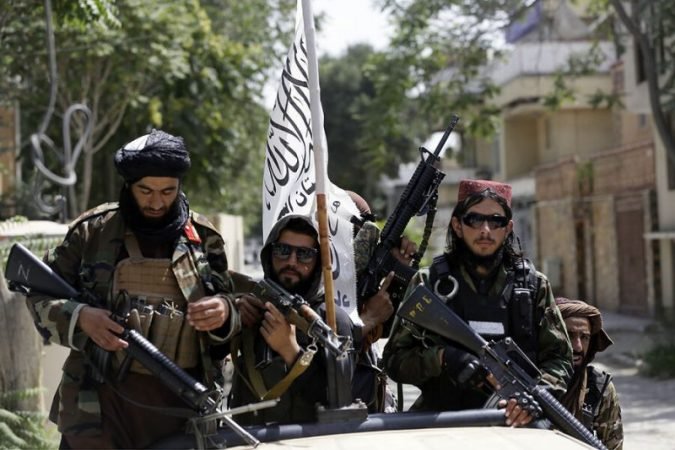What does Taliban as neighbor entail for India?

With tens of thousands of US-NATO citizens and Afghan helpers living in Kabul, the Taliban’s capture of Kabul led to chaos in the city and everyone escaping to the Hamid Karzai International Airport – the last exit point from Afghanistan in the hope of being evacuated to safety. The American forces quickly took over the control of the airport prompting governments around the world to lobby with the US authorities for the safe evacuation of their citizens, which has become the single most important security challenge for most countries now. For the West and its allies, the task at hand may well be their last involvement in Afghanistan but for India, this may well be the beginning of an adverse security environment with long term impacts.
Indian commercial and strategic interests take a hit
India’s interests in Afghanistan are huge and diverse. Trade with Afghanistan crossed USD 1.5 billion in 2019-20 with a surplus of approximately USD 470 million in India’s favour. India provided aid of USD 3 billion over the last 2 decades which helped Afghans build dams, power lines, roads, clinics, schools, library and even a new Parliament complex. India also trained Afghan military cadres in its military academies and provided scholarships to hundreds of Afghans in pursuit of academic excellence. Humanitarian and military aid aside, India – Iran – Afghanistan signed a trilateral agreement on Transit and Transport Corridor in 2016 which involved operationalization of the Chabahar port, construction of Chabahar – Zahedan rail line and linking it with Zaranj – Delaram highway which has been built with Indian aid. The strategic motive behind the transit corridor for India is to access Afghanistan and Central Asian nations sans Pakistan and also a safe and secure route for Indian companies who received concession awards of Hajigak mines of the Maiden Wardak and Bamyan province; the mines with the biggest untapped iron ore deposits in Asia.
The double threat of terror and terror sponsors
The return of the Taliban poses a direct threat to Indian interests in Afghanistan. While the Taliban was offering sugarcoated assurances, its militias ransacked Indian consulates in Herat and Kandahar. Even evacuation of Indian citizens is under constant threat from militias of Taliban and more importantly, from the Pakistani based terror groups like Haqqani network and TTP who have been given a free hand in most cities. Pakistan has for long endured international pressure and sanctions against arming and funding terror groups and this may be its time to extract benefits from the decade long investment. These interests may best be extracted in the form of targeting Indian interests and eliminating Indian presence, especially blocking the access route to Central Asia and further north. Pakistan based militias may even be directed to the northern and western borders of India once the control over administration is secured and would consequently result in increased infiltration of terrorists from the Pakistani side.

Borders under tension
The establishment of Pakistan friendly regime in Afghanistan also frees the Pakistani army from deployments on its western borders and hence provides more scope for troop mobilization on the eastern front. With Chinese incursions mandating bolstering of forces along LAC, the current situation further adds to the complex security challenges for India. There are negligent chances of the Taliban honouring its commitment of not allowing Afghan soil for terror activities against other nations and may very well harbour anti-India forces which may provide a new impetus to radicalizing and destabilizing forces in Kashmir and the rest of India.
Narcotics push
Another huge challenge for India will be on the narcotics front. Afghanistan has emerged as a prime source of opium and heroin for smugglers in India. With the active aid and support of Pakistan, smuggling drugs from Afghanistan to India may become a lot easier now and poses a challenge for the Indian authorities. Taliban has been a direct beneficiary of the thriving opium trade whose acreage grew by almost 35% in 2020. Lack of employment, volatile economy, withdrawal of foreign aid and loss of local spending by foreign forces will inevitably lead to destitute Afghans turning to the narcotics trade. There is little to believe that the Taliban will ban poppy cultivation as corrupt warlords and armed groups vie for drug profits and power.
Balancing goodwill and strategy
India stands at a crossroad with neighbouring countries like Pakistan, China and traditional partner Russia clearly on track of recognizing the Taliban regime whose recognition may become contradictory for India which has always spoken vigorously against Taliban and terrorism in general while strategic reasons may induce India to think about recognizing the Taliban regime. For a country that has enjoyed immense goodwill among Afghans because of its unwavering stance of ‘Afghan-led, Afghan-owned and Afghan controlled’ peace process, any attempt at legitimizing the Taliban regime may negatively impact this soft power as well.
Look long, think with a calm
Taking Taliban at face value is not a mistake that India will likely commit but the set up of a terrorist regime next door should surely send alarm bells ringing in Indian intelligence circles and India needs to be more proactive on the diplomatic and security front in securing Indian interests.


















